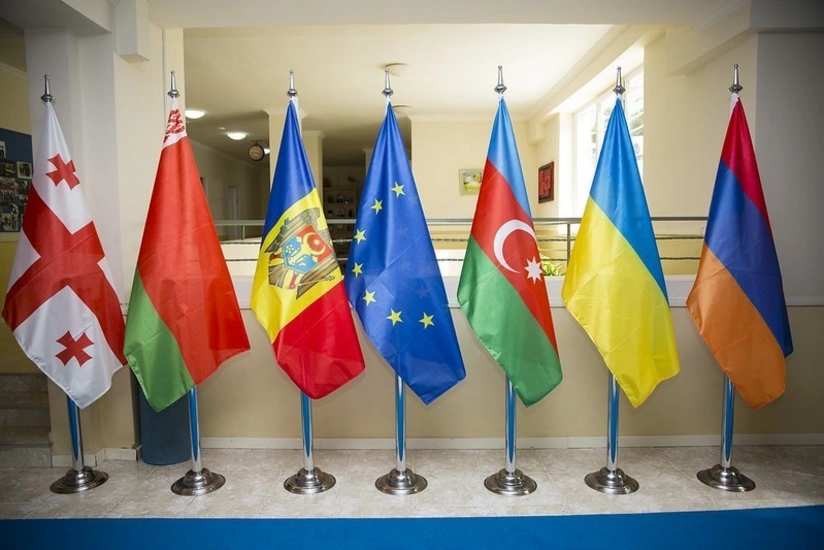Expert: Azerbaijan has never jumped recklessly into EU’s arms
- 20 February, 2020
- 09:35

"The central element in the Eastern Partnership program for Azerbaijan is a full-fledged bilateral format in relations," political scientist Tofig Abbasov said. He commented on a joint appeal by the Foreign Ministries of Ukraine, Georgia, and Moldova to the European Commission, with a request to provide financial support to the Eastern Partnership region as part of the EU financial perspective for 2021-2027.
The expert said: "The Eastern Partnership project was born in the late 90s when the post-Soviet period was still there. At that time, many new and young state entities in the post-Soviet space faced numerous difficulties. EU has created a project for six post-Soviet states, pursuing a goal to bring them out of Russia's control and to link to itself with stronger bonds."
When the program was launched in 2008, many in the EU were actively supporting the Eastern Partnership. They were those who further promoted GUAM.
"The goal of the project was rather geopolitical than economic. Over the years, the countries have developed their visions of the Eastern Partnership. Those three countries - Moldova, Ukraine, Georgia - signed associative agreements with the EU, Armenia later signed a kind of deal in a "twisted" mode. Azerbaijan retains its position, considering that there is no reason to sign an agreement in a similar format, based on economic expediency and unequal partnership, where Brussels can impose its point of view," the expert said.
He noted that the central element in the Eastern Partnership program for Azerbaijan is the presence of a full-fledged bilateral format of relations.
"Since independence, Azerbaijan has significantly improved its economic indicators, becoming a tangible player in the energy market and taking a direct part in the creation of many international infrastructure projects. Azerbaijan also has "full-weighted" strategic economic partnership agreements with nine EU states."
He added that Azerbaijan does not accept any dictates.
"We should not be imposed any conditions that may further turn out disadvantageous for us. Europeans promised much, including visa facilitation, conditions for our citizens when they visit Europe. This is the right step, but Azerbaijan has now developed a slightly different position in the geoeconomic plane. Azerbaijan is a stable supplier of energy resources to Western markets. European countries are the main consumers of our energy resources. We do not conceal that this is a very profitable partnership, but no one can impose any terms on Azerbaijan or dictate norms. Therefore, Azerbaijan has never jumped recklessly into EU’s arms; on the contrary, it always raised the issue of equal partnership. This principle is key not only with the EU and its countries but the entire world in general," the expert said.
Speaking about the dates of signing a new agreement between Azerbaijan and the EU, the political scientist expressed the view it will take place this year.
"I think that the signing of a new document with the EU will indeed be just around the corner. Then things will be sorted out. I do not foresee any problems for our country in this direction. Azerbaijan is committed to its obligations before the EU."
He said the Azerbaijani national elite had gone through the war as negotiators who "can see their goals, defend national interests, and have the skills to conduct discussions where rights would not be infringed."
"I think the Europeans understood and realized this. Today, the economic policy of the Azerbaijani leadership is pragmatic and functional. It takes into account present-day needs and people's future concerns and expectations," he said.
